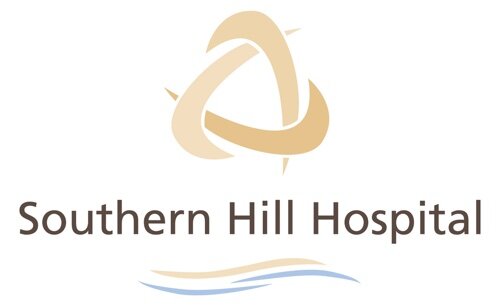Referrals at Southern Hill Hospital
How to Make a Referral
NHS Referrals - If you are a healthcare provider seeking to refer a patient to our hospital, please email patient details to our secure email address: southernhill.hospital1@nhs.net and we will respond within 45 minutes with our decision confirming acceptance of your admission. Alternatively please call our referral telephone line 0333 220 6033. We will work with you to ensure a smooth and efficient referral and admission process.
Private Referrals
For private patients, please telephone 0333 220 6033 and ask to speak to our private patients admissions coordinator to arrange an urgent consultation and potential admission. Private referrals can also be initiated by a patient's GP, another specialist, or by the patient themselves, seeking specialised care that is not covered under the NHS. The process for private referrals at Southern Hill Hospital involves several key steps:
Private referrals are a significant aspect of our service offering, catering to patients who seek expedited access to specialist consultations, diagnostic services, and treatment without the waiting times often associated with NHS pathways. This approach ensures that patients receive timely and personalised care tailored to their specific needs.
The private referral process at Southern Hill Hospital is designed to be straightforward and patient-friendly. It begins with an initial consultation, either with the patient's General Practitioner (GP) or a specialist. During this consultation, the healthcare provider assesses the patient's condition and determines the necessity for specialist intervention. If specialist care is deemed necessary, a detailed referral letter is crafted, encapsulating the patient's medical history, current health status, and specific reasons for the referral. This letter serves as a crucial document that guides the specialist in understanding the patient's health needs right from the outset.
Private referrals offer numerous benefits, including reduced waiting times, greater flexibility in scheduling appointments, and access to a wide range of specialist services and advanced medical technologies. This pathway is particularly advantageous for patients who seek immediate medical attention and prefer a more personalised healthcare experience. Our team is dedicated to ensuring that every private referral is handled with the utmost care and professionalism, reflecting our commitment to delivering excellence in healthcare.
The Role of Integrated Care Boards (ICBs)
Integrated Care Boards (ICBs) are pivotal in coordinating healthcare services and ensuring integrated care delivery across different providers and settings. ICBs bring together NHS organisations, local authorities, and other stakeholders to improve health outcomes and provide seamless, patient-centred care. At Southern Hill Hospital, we work closely with ICBs to streamline the referral process and enhance patient care. The key roles of ICBs in the referral process include:
Coordination and Integration: ICBs facilitate coordination between primary, secondary, and tertiary care providers, ensuring that patients receive the right care at the right time. They help bridge gaps in care and reduce fragmentation in the healthcare system.
Resource Allocation: ICBs are responsible for allocating resources and funding to various healthcare providers, including Southern Hill Hospital. This ensures that hospitals have the necessary resources to manage referrals efficiently and provide high-quality care.
Monitoring and Evaluation: ICBs monitor the performance of healthcare providers, including the efficiency and effectiveness of the referral process. They use this data to identify areas for improvement and implement strategies to enhance patient care.
Patient Pathways: ICBs develop and oversee patient pathways, which outline the steps a patient should follow from initial referral to treatment and follow-up. These pathways ensure consistency and continuity of care, enhancing patient outcomes.
Collaboration with Local Authorities
Local authorities play a crucial role in the NHS referral process, particularly for patients requiring social care services or support. Southern Hill Hospital collaborates closely with local authorities to ensure a holistic approach to patient care. Key aspects of this collaboration include:
Integrated Health and Social Care: By working together, Southern Hill Hospital and local authorities provide integrated health and social care services. This approach ensures that patients receive comprehensive care that addresses both their medical and social needs.
Support Services: Local authorities provide various support services, such as home care, rehabilitation, and community support, which are essential for patients transitioning from hospital to home. These services are coordinated with the hospital's care plan to ensure a smooth transition and ongoing support.
Safeguarding: Local authorities are responsible for safeguarding vulnerable individuals, including those with complex health and social care needs. Southern Hill Hospital works with local authorities to ensure that patients are protected and receive the necessary support.
Health Promotion and Prevention: Local authorities play a key role in health promotion and disease prevention initiatives. By collaborating with local authorities, Southern Hill Hospital contributes to community health improvement efforts, reducing the need for hospital referrals.
Through ongoing efforts to enhance the referral process, embrace digital technologies, and prioritise patient-centred care, Southern Hill Hospital continues to uphold its commitment to excellence in healthcare. Whether through private referrals or NHS collaborations, the hospital remains focused on delivering the highest standards of care to every patient, every time.
